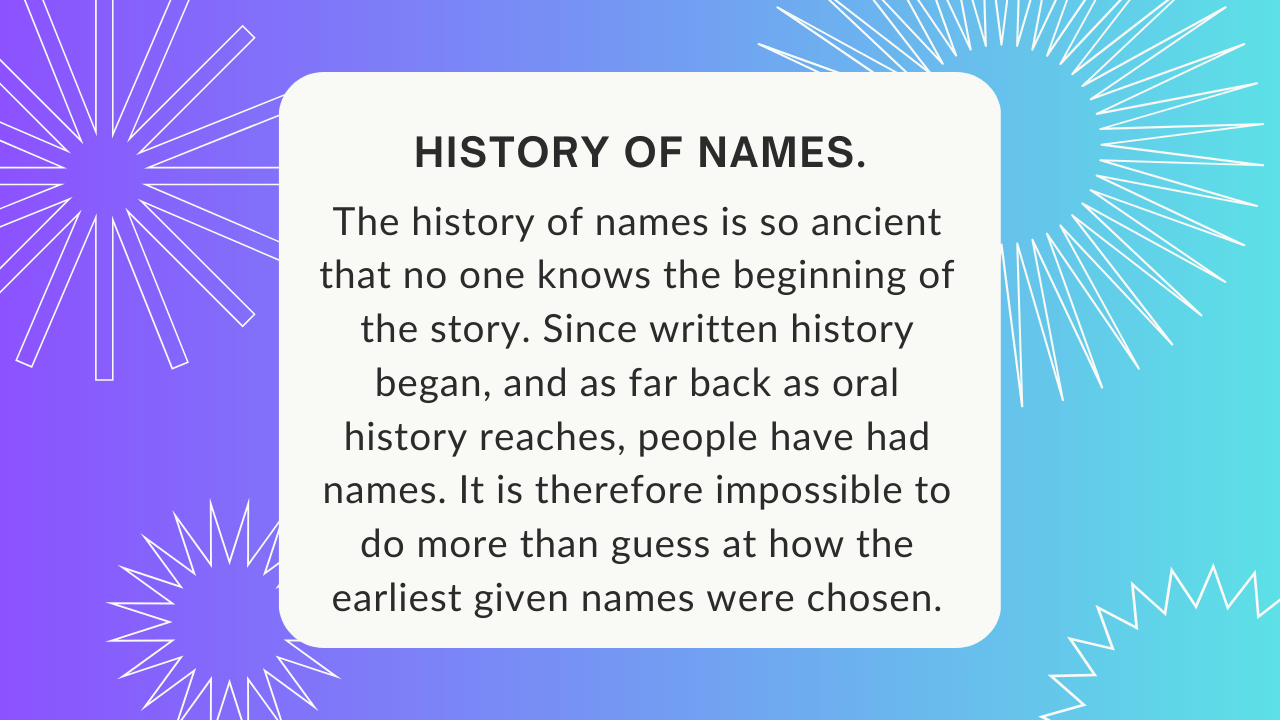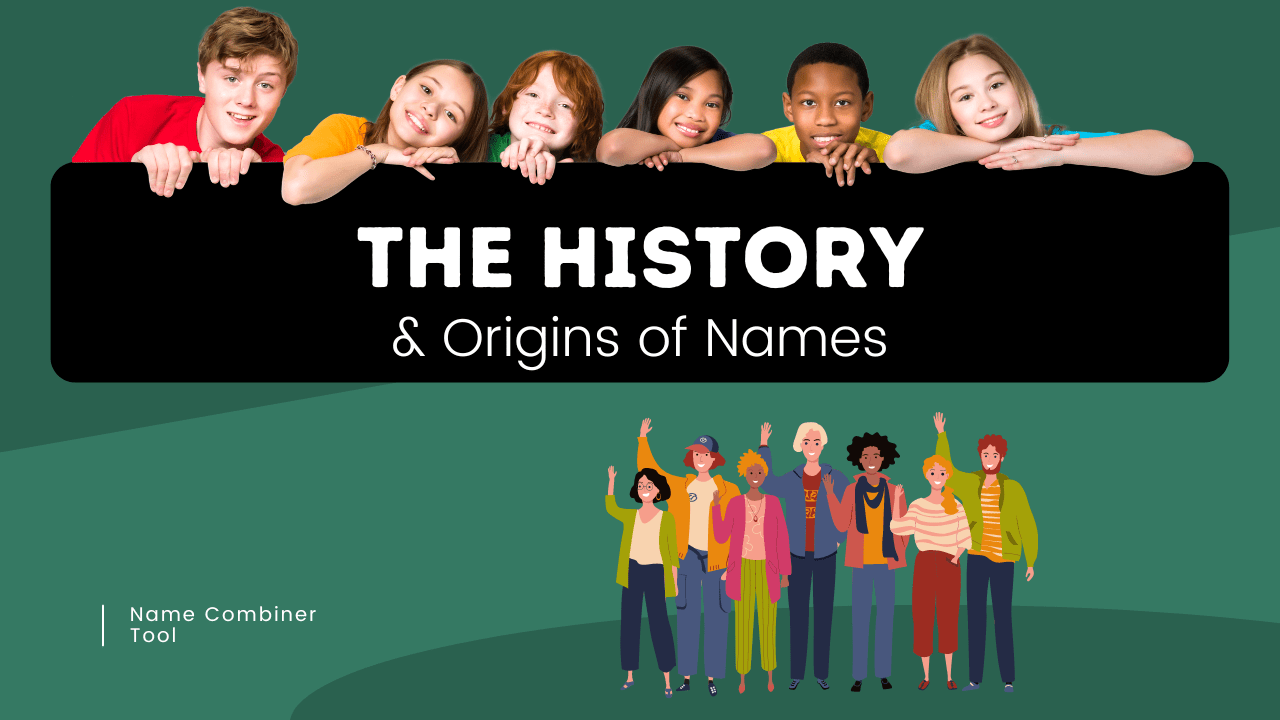Guess what is something that everyone in the living being has in common? They all have names! Most students who are interested in language and English show curiosity about the history or origin of Names.
Do you ever wonder where all names come from? Where did your name come from? We can guess your family selected it but how where did they bring it? It had all started from somewhere, isn’t it?
Of course, it did To be honest, last names haven’t been a thing for everyone. One of the first cultures to adopt surnames was China. It is said that to aid in their census more than three millennia ago, people there adopted family names. Mothers passed on surnames for a long time. However, as is the case across much of the world, the majority of children in China today adopt their father’s last name.
A person’s name has meanings, just like any other word in the dictionary. The term onomatology refers to the study of names.
In this article, we will talk about the history of names or names in history, whatever. Thus, learning the past is fun because then we all can know how the past shaped us or how we are shaping the future.
History of Names
It is hard to guess the name of the first person because the history of names has become so ancient; No one knows where it all starts. Pinpointing the exact outsets of this practice proves challenging due to its ancient roots. Therefore, most names seem to have original meanings rather while others have just pleasing collections of sounds.
Examples are the Irish Gaelic names Conan “hound, wolf” and “fire.

Back in the times, people reused certain names that were selected from their culture until they created a name pool for their particular civilization.
But you notice that the names used in ancient names were not all recognized in today’s century. This is because as time revolves, the original meaning of the name is lost, but the fossil forms of the names are left behind.
Take the example of Edward’s name which originally was the old word ‘ead”. It means prosperity, fortune, And wine which indicates “companions”. But both words are eliminated from the terminology in the fast-changing world.
Viewpoints About Names
In the ancient world, people believed that names were so different. For them, names are not just words, they are extremely powerful or in some ways, an indication to God.
This viewpoint led to some interesting practices. In Hebrew, this led to the hesitation to use the proper name of God. Even, they avoided using it in talking or writing. Some believed that evoking a god or spirit by name can summon something huge and uncontrollable like a miracle.
This belief is passed into other religions or rituals. For example, in catholic exorcism, the exorcist can’t beat out a demon until they make it spill its name. Once they know the name, they can use it like a stern command to send the demon packing.
Surnames
Traveling back to the 11th century, the early examples of surnames begin to appear in England. Names such as John, Elizabeth, and Paul are common surnames that are still used in the 21st century.
Originally, surnames were derived from a characteristic that helped identify a person, such as occupation, father’s name (if the son of), physical characteristics, or place of birth. The common sources of surnames are shown below.
- Trade Surnames: originate from an individual’s profession or work. These names provide a direct link to the person’s occupation, reflecting a diverse range of skills and trades such as chef, jeweler, carpenter, tailor, and many others.
- Patronymic Surnames: derive from the addition of “son” to the given name of one’s father, indicating a lineage or familial connection. Examples include well-known surnames like Williamson, Johnson, Robertson, Carlson, and Richardson.
- Characteristics Surnames: Characteristics Surnames add another layer of personalization by describing an individual’s physical attributes or character traits. These surnames may highlight features such as size (Short, Long, Little), coloring (Black, White, Gray), or other characteristic qualities (Stern, Strong, Swift).
- Toponymic Surnames: derived from a person’s place of origin, land they held, or topographic features of the area, connect individuals to geographical locations. Examples like Spalding, Hamilton, London, Montgomery, and Newton provide a glimpse into the historical ties people had with specific regions or landmarks.
Conclusion:
To sum up, the names’ journey is a fascinating investigation into culture, religion, and history. The origins of surname usage can be traced back to China. Since then, our perception of names has changed gradually.
Through investigating names and their origins, we have come to understand that names serve as more than just identifiers—they are like crates holding the intricate fabric of human history.

